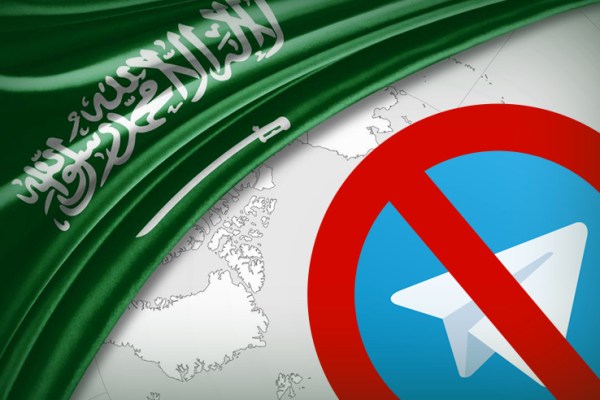This post has been updated to reflect that Telegram’s service has been slowed in Saudi Arabia, but not blocked.
Telegram has been throttled in Saudi Arabia since Sunday evening and the company has been left bewildered by the abrupt slowdown to their platform.
“I confirm, Telegram traffic is partly limited in Saudi Arabia since yesterday evening. The reasons are unknown,” Pavel Durov said via Twitter.
The reports began to trickle in earlier that day by users as they tried to determine whether the instant messenger was being intentionally disrupted or if it was just a technical hiccup.
At first download speeds seemed to be lagging until the company later confirmed that the service was being altogether blocked by the Saudi government, who for their part have yet to address the alleged situation.
I confirm, Telegram traffic is partly limited in Saudi Arabia since yesterday evening. The reasons are unknown. https://t.co/9egmDp7Wv3
— Pavel Durov (@durov) January 10, 2016
Ever since the Paris attacks late last year, Telegram has been under increasing scrutiny; accused of being the channel of choice for groups like ISIS and other extremist organizations. Its channels are rife with unrestricted content that, in part, is supported by the company’s policy towards freedom of speech, although the company has been working to stamp out offensive material in order to appease regulatory authorities.
This filtering process has resembled playing whack-a-mole or, more appropriately, battling a Hydra. Every time Telegram would block an ISIS-affiliated channel, another two would grow in its place!
In Iran, another contentious country for the instant messenger, the situation is much more murky. There are an estimated 20 million Telegram users in the Islamic Republic, sparking a continual stream of questions on whether the platform is hosted within the country (at least partially) or will be doing so in the near future thanks to global regulations.
Regardless, the company has been under tremendous pressure in recent months as the Iranian government insists on the removal of what it deems to be immoral content.
Telegram has been complying by targeting channels and bots related in any way to pornography or criminal activity and their efforts appear to be working.
Last week they survived a vote by Iran’s judiciary to be censored.
“The Committee’s decision does not mean that the Judiciary will avoid its responsibility in taking action against Telegram to stop the distribution of criminal content in cyberspace,” said Abdolsamad Khorramabadi, Secretary of the Working Group to Determine Instances of Criminal Content on the Internet, the organisation in charge of Internet filtering.
They seem to be playing ball for the time being. In the past 24 hours they have blocked the Pake Shadi channel, a TV program in Iran, after the latter published a statement of boycotting the upcoming elections.
Predictably, this sparked a wave of public criticism towards the company on social media, accusing them of being in cahoots with the Iranian hardliners. The same trial by fire appears to be happening in Saudi Arabia but the government has yet to confirm or deny the reasons for why. It is likely on similar grounds as in Iran where a stronger willingness and or capacity to moderate content based on Islamic moral guidelines will be necessary if the company wishes to remedy its current plight and maintain its presence in the region.
